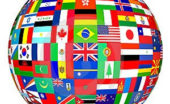Molly Minturn - My family is heartbroken to share that my father died in surgery on Monday, Feb. 10. It…
Wednesday Night #1972 New Year’s 2020
Written by Diana Thebaud Nicholson // January 1, 2020 // Wednesday Nights // Comments Off on Wednesday Night #1972 New Year’s 2020
HAPPY NEW YEAR to one and all! And take comfort – or maybe not – in the fact that we will have 2020 vision throughout the coming year.
I have learned that the next decade begins on January 1st 2021. New decades always begin with a year ending with number 1. Because there was never the year 0. … interesting, confusing and even debatable. A decade is 10 years…from 1 to 10. Therefore we are still short by 1 year. Go figure.
I believe most of us are extremely happy to see the end of 2019 and I cannot even begin to tackle the round-up of events -memorable or otherwise- that have marked the tumultuous times we have somehow survived. So herewith some random thoughts and items you may have missed.
Aislin’s favourite cartoons of 2019
What Will the World Look Like in 2030?
Lab meat. Cyber terror. Influencer I.P.O.s. The New York Times Opinion section asked politicians, writers, technologists, thinkers and others what most excites or terrifies them about what will come between now and 2030.
“The reviews are in for the 2010s and they are at best mixed. For good reason: You can stroll down the street talking to your far-flung grandmother on FaceTime while corporations and governments use facial recognition technology to surveil you. There’s been a multicultural renaissance in arts and culture and a sluggish, unequal recovery from the Great Recession. Donald Trump was elected president and Alexandria Ocasio-Cortez emerged as a potential new face of the Democratic Party. Depending on who you are, some trends of this decade have delighted you, others filled you with dread.
The 2020s will surely be characterized by the same subjective mix of terror and excitement. But over what? “Read on.
Brookings takes a selective look back at some of the biggest stories and issues that “shaped our work and the world over the past year.” In the coming weeks Brookings experts will offer predictions on important trends to watch in 2020.
We are not Brookings experts, but predict that topics that will be high on the list are: AI; climate change; globalization and multilateralism; inequalities (see UN Human Development Report 2019 Inequalities in Human Development in the 21st Century); migration; nationalism and its evil twin, populism; we would also suggest the fragile state of independent traditional media, ‘fake news’ and the omnipresence of social media with its virtues and flaws.
According to CBC’s The Current Climate change (and pipelines), Indigenous issues, national unity top the Canadian political stories to watch in 2020.
Writing in Project Syndicate, Isabel Ortiz offers a grim assessment: “61 countries will have presidential or parliamentary elections in 2020. Many citizens are tired of conventional orthodox policies; they want change, and they will choose new parties as a way to achieve this.This is an important opportunity to redress the current situation, but many of the new emerging leaders are far right demagogues who blame today’s problems on social-welfare policies, migrants, and the poor, while aiming to remove all remaining constraints on capital.” She concludes “Governments, and ultimately citizens, can improve the world in 2020. But if they continue obsessing about stock prices and quarterly earnings at the expense of a long-term vision, hiking defense spending and cutting welfare, blaming migrants and the poor, while allowing the rich to become richer and the environment to be further damaged, it will be another long year of living dangerously.”
A relevant piece by Mona Fawaz, Professor of Urban Studies & Planning at the American University of Beirut, underlines that “Confronting inequalities is not about merely bridging gaps, it requires confronting entrenched interests.”
The Left is Having an Identity Crisis
We no longer present a cohesive movement, and we no longer form coherent political parties. We are a fractured and ill-defined mess, our goals are diffuse and scattered, and we are hemorrhaging supporters from what should be our base—the working class, liberals, and racial and sexual minorities. It is not clear that left-wing parties and movements are currently listening to that base or have its best interests at heart.
We’re Getting a Clearer Picture of the Climate Future — and It’s Not as Bad as It Once Looked
“You may not have noticed it, amid the flood of bad news about the “Emissions Gap” and the collapse of the COP25 climate conference in Madrid, but over the last few weeks a new narrative about the climate future has emerged, on balance encouraging … As best as we can understand and project the medium- and long-term trajectories of energy use and emissions, the window of possible climate futures is probably narrowing, with both the most optimistic scenarios and the most pessimistic ones seeming, now, less likely.”
But Mark Carney, the incoming UN special envoy for climate action and finance, is likening the climate crisis to a financial crisis — and says action by the financial sector to help tackle the issue is “absolutely necessary.” He said that while the financial sector has begun to make changes in the way it invests in public pensions funds, its action has been too slow.
And the wildfire crisis in Australia worsens every day, while New York Magazine’s David Wallace-Wells writes that Global Apathy Toward the Fires in Australia Is a Scary Portent for the Future
Guarded optimism – sort of
The Global Economy 2020: A Positive Outlook Shadowed by China, Debt, and Trade Tensions
Experts expect growth to rebound, but many of their projections are built on shaky foundations.
One big reason for the dose of optimism is the generally looser approach to the money supply taken by central banks around the world, which helped offset some of the pain of trade wars and falling investment in 2019 and promises to allow a modest rebound next year (but which carries its own risks).
But those growth expectations are premised, in both cases, on a couple of potentially tenuous foundations: a rebound in emerging markets, such as Argentina and Turkey, that have been hammered in recent years, and a halt to further nasty surprises like trade wars, imploding markets, debt time bombs, and the like. Economists expect the wild cards for 2020 to point in one direction: downward.
Global shares hit record highs in festive cheer
World stocks scaled record highs on Friday and oil prices stayed buoyant in a holiday-shortened week, as optimism grew that a U.S.-China trade deal would soon be signed. And North American markets end best year since 2013 thanks to big gains in tech stocks.
But don’t get all giddy about the China trade deal. North Korea Is No Longer Bound by Nuclear Test Moratorium, Kim Says Mr. Kim also said the world would witness a new strategic weapon “in the near future,” according to the North’s official Korean Central News Agency. If that is not enough to be worried about, turn to the situation in India where thousands are protesting the new citizenship law.
We will leave commentary on Canadian politics to another Wednesday, but cannot resist Jeremy Kinsman‘s charming piece on The Many Stages of Chrystia Freeland
Policy foreign affairs writer and veteran diplomat Jeremy Kinsman first met Deputy Prime Minister Chrystia Freeland over dinner at a mutual friend’s apartment in Moscow in the tumultuous early 90s, when he was Canada’s ambassador to Russia and she was a young journalist. Since that moment, he has seen her dance on a tabletop at the Hungry Duck pub, provoke Vladimir Putin, finesse Donald Trump and become the most powerful woman in Canada. It’s been a trip.
A wonderfully positive piece that augurs well for the future:
My Semester With the Snowflakes
At 52, I was accepted to Yale as a freshman. The students I met there surprised me.
In contrast: Is Social Media The New Tobacco?
If we set out to design a highly addictive platform that optimized the most toxic, destructive aspects of human nature, we’d eventually come up with social media
Art imitates life. A must-have for Montrealers
Brownstein: This Montreal board game rewards the corrupt
In Construction & Corruption, each player is a construction boss responsible for a contract. The idea is not to finish the contract, so as to collect more money in the process of keeping the work going.
When the list of new recipients of the Order of Canada was published on the 27th, it contained a commendable representation of scientists, community advocates and philanthropists in fields ranging from autism to multiculturalism to ecology. We were particularly struck by two names: James Cameron, the well-known filmmaker and Anne Dagg, “Queen of Giraffes” whose work was recently documented in the film “The Woman Who Loves Giraffes”. In the case of Mr. Cameron, we confess that we were ignorant of the investments he and his wife have made in Saskatchewan as part of their efforts to promote sustainable living.
A delightful story about Ingo The Dog And His Owl Friends will cheer you up – the pictures are simply extraordinary. His human companion Tanja Brandt is a great photographer – see more of her enchanting photos and smile.
700,000 Ancient African Books Have Survived In Mali’s Timbuktu University
Just about 250,000 old manuscripts from the libraries of Timbuktu still survive in present-day Ethiopia. Also, thousands of documents from the medieval Sudanese empire of Makuria, written in at least eight different languages were dug out at the southern Egyptian site of Qasr Ibrim. Thousands of more old manuscripts have equally survived in the West African cities of Chinguetti, Walata, Oudane, Kano, and Agadez.
More than 60 libraries in Timbuktu are still owned and managed by local families and institutions, some of which are collections that survived the turbulence through the region, as well as the ravages from nature. A veritable example is the Ahmed Baba Institute, which was established in 1979, and named after the famous 16th/17th-century scholar, considered the greatest in Africa.
And on the other hand:
End of an era for book publisher Penguin
Penguin is being sold by Pearson, its owner for the last half-century, as the company focuses its activities exclusively on education.
Pearson today announced that it was selling its remaining stake in Penguin Random House, the book publishing joint venture it formed six years ago with Bertelsmann, the German media group. The sale means that none of the so-called ‘Big Five’ of English-language book publishing remain in British ownership.



